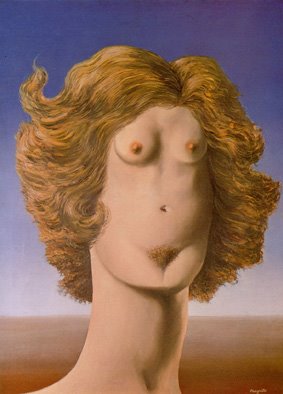
Rene Magritte - The Rape (1934)
"Everything we see hides another thing, we always want to see what is hidden by what we see."
Rene Magritte
"This book [The Order of Things] first arose out of a passage in Borges, out of the laughter that shattered, as I read the passage, all the familiar landmarks of my thought - our thought, the thought that bears the stamp of our age and our geography - breaking up all the ordered surfaces and all the planes with which we are accustomed to tame the wild profusion of existing things...This passage quotes 'a certain Chinese encyclopaedia' in which it is written that 'animals are divided into: (a) belonging to the emperor, (b) embalmed, (c) tame, (d) sucking pigs, (e) sirens, (f) fabulous, (g) stray dogs, (h) included in the present classification, (i) frenzied, (j) innumerable, (k) drawn with a very fine camelhair brush, (l) et cetera, (m) having just broken the water pitcher, (n) that from a long way off look like flies'. In the wonderment of this taxonomy, the thing that...is demonstrated as the exotic charm of another system of thought, is the limitation of our own, the stark impossibility of thinking that."
"Never lose sight of the fact that all human felicity lies in man's imagination, and that he cannot think to attain it unless he heeds all his caprices. The most fortunate of persons is he who has the most means to satisfy his vagaries."
Michel Foucault
"Never lose sight of the fact that all human felicity lies in man's imagination, and that he cannot think to attain it unless he heeds all his caprices. The most fortunate of persons is he who has the most means to satisfy his vagaries."
Marquis de Sade